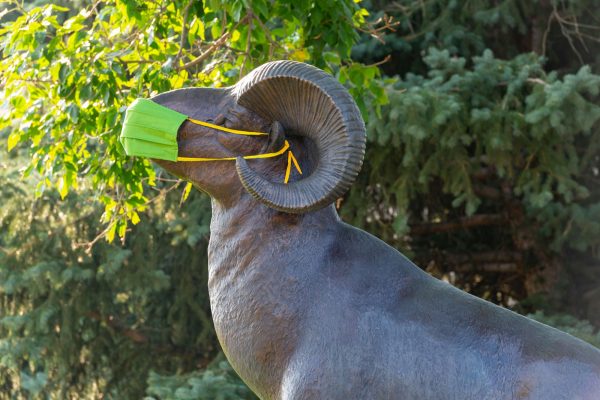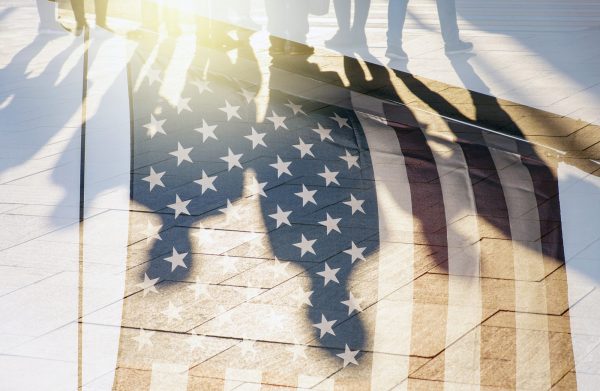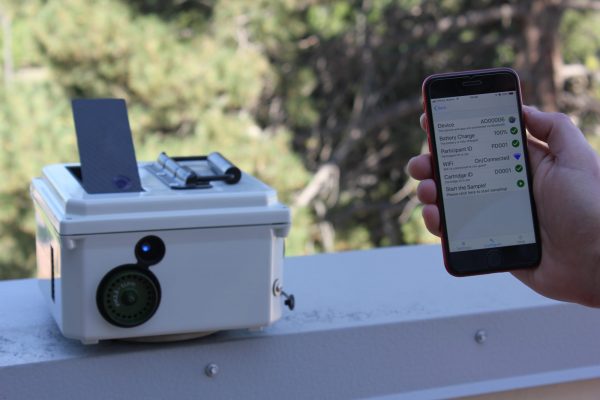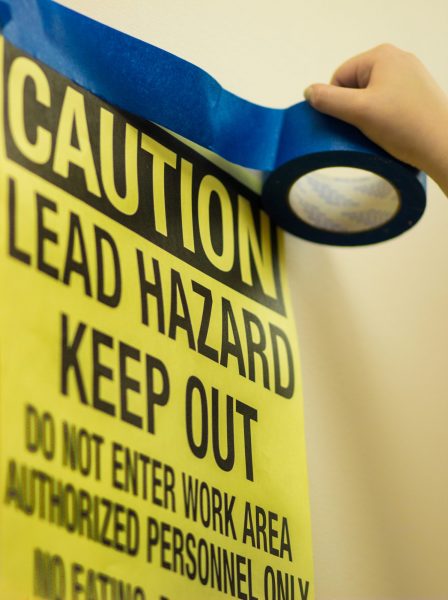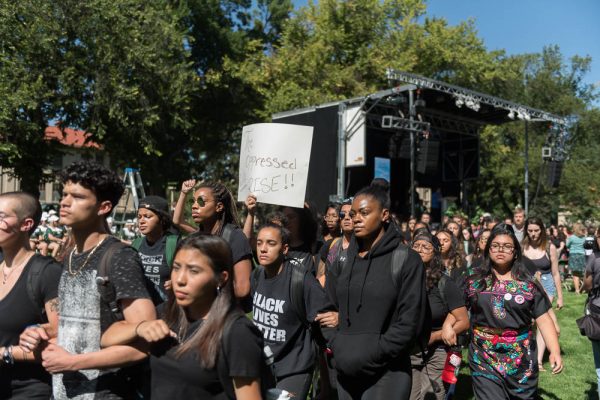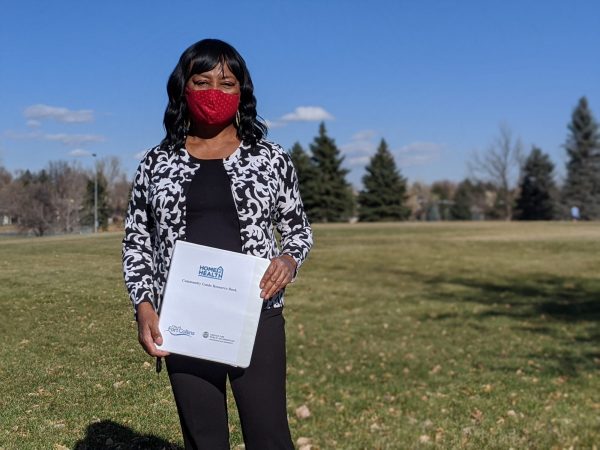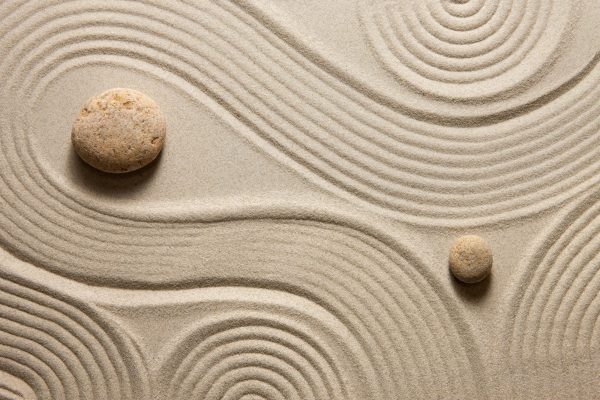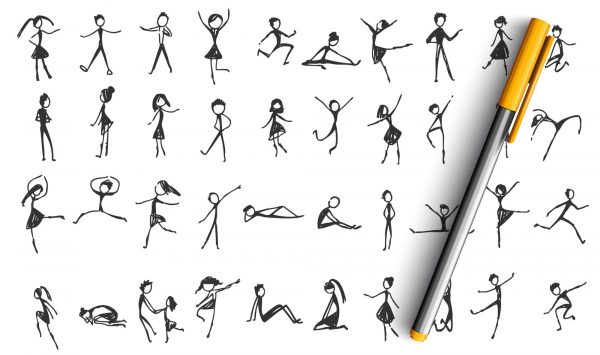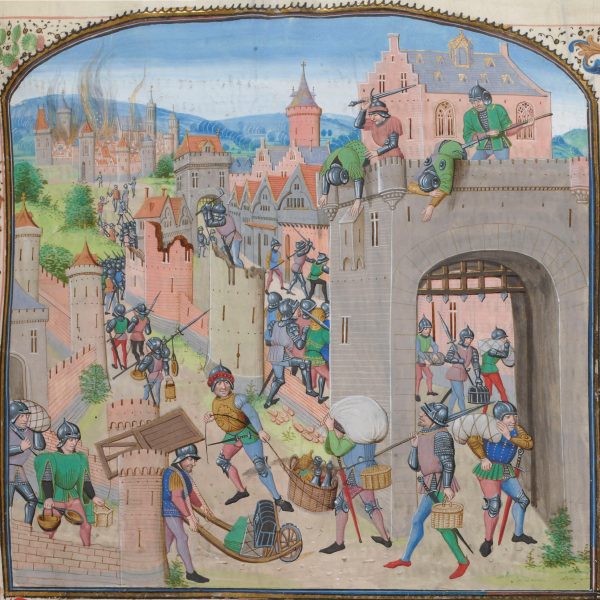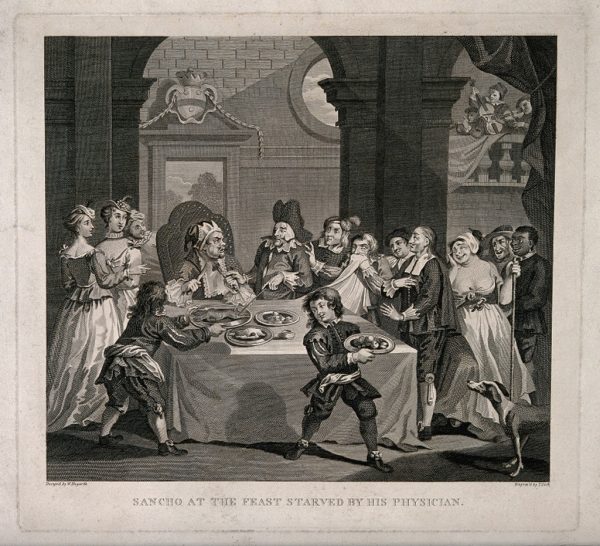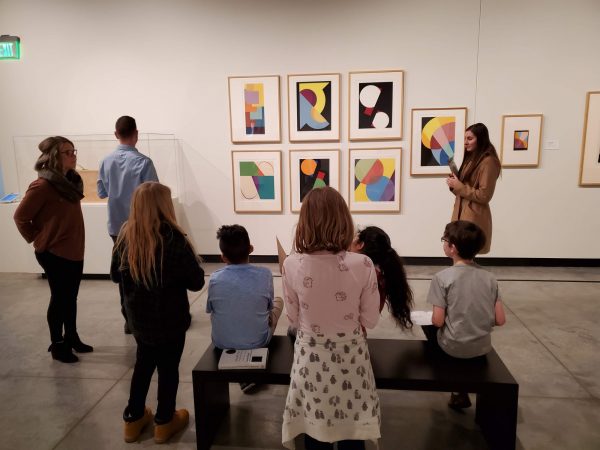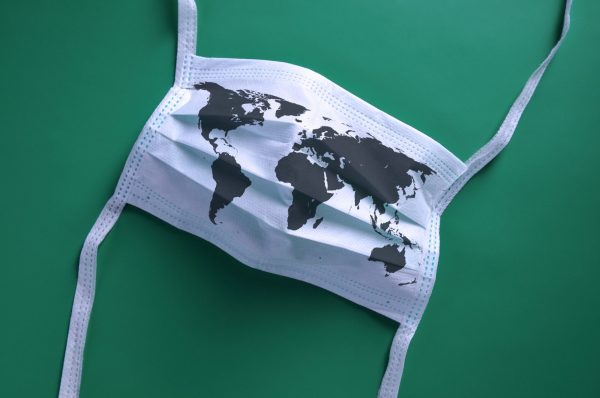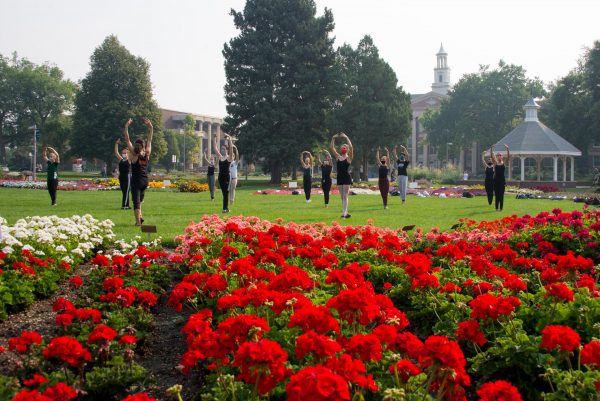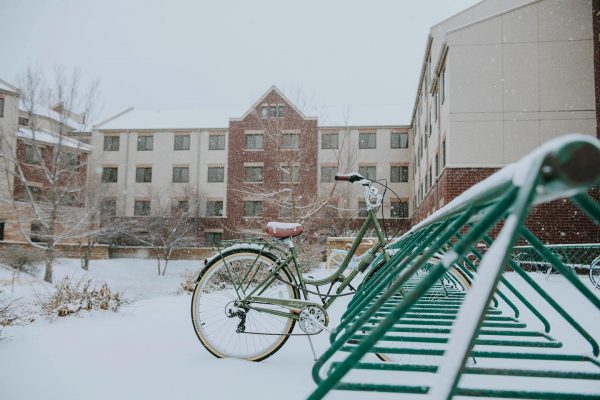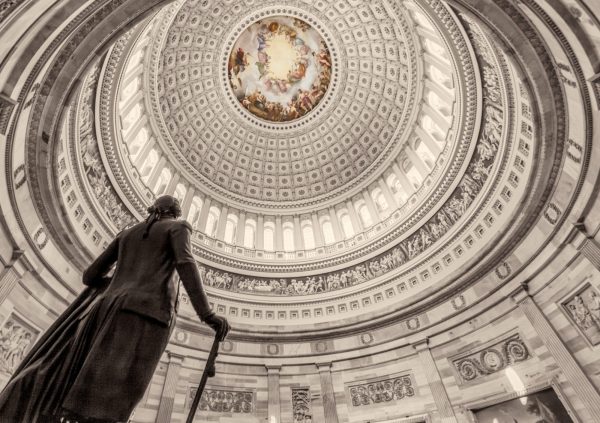Winter 2020
Lenses of the Liberal Arts: Health
How our disciplines in the arts, humanities, and social sciences help us identify, analyze, and understand our world from a variety of perspectives.
Scroll down to see this issue's featured stories
Navigating the Complex Terrain of Life
Health isn’t solely the purview of hard science. Politics, economics, rhetoric, art, and history all provide essential perspectives on what it means to be healthy. This issue gives a liberal arts perspective on health.
Mapping People and the Environment
Students in the course Geography of Global Health had a unique opportunity to study the global health lesson of the COVID-19 pandemic as it unfolded across the world in Spring 2020. Learning about inequalities, vulnerabilities, and human-environment relations that shape the disease dynamics, outbreaks, and incidence taught students to investigate the social and systemic interactions of the virus.
The Health, Strength, and Vitality of a Democracy
Can a democracy be healthy or unhealthy? Political science professors weigh in on how democracies are created and the work required to maintain them.
Understanding the Invisible: Air Quality and Health
Journalism and Media Communication
A citizen-science project aims to see if the act of measuring air quality influences how we understand and think about the air from a day-to-day standpoint. Journalism professors and students are working with air quality scientists to incorporate the social sciences—or the human element—in to their investigation.
Lead exposure study shows how economics leads to understanding health at another level
Chris Keyes, Ph.D. candidate, has discovered not just a correlation, but a causal relationship, between a region’s level of lead and the degree to which the people who grew up there suffered adverse health and cognitive effects from elevated levels of lead in their blood.
A Spotlight on the Mental Health Struggles of Students of Color at CSU
Race, Gender, and Ethnic Studies
The pandemic has impacted everyone, but students of color experience particular stresses that negatively affect their mental health. A variety of units on campus – B/AACC, the Health Network, and the Ethnic Studies dept are providing resources, support, and education to help students navigate this difficult time.
Community Guide Project amplifies housing’s impact on health for Fort Collins residents
How can a city encourage participation in a critical topic such as sustainable, affordable housing? Call on a variety of agencies and the Center for Public Deliberation to solicit people from a wide spectrum and teach them how to engage in productive community conversation. The result is a successful first step toward meeting people’s physical and mental health needs related to housing.
Economic viability and the health of a community: Tackling wicked problems begins at the kitchen table
What’s a small town to do when their economic breadwinner – oil and gas – disappears? Some towns consider hosting a prison, but the environmental, economic, and community impact is significant and can drive townspeople apart. Through stories and anecdotes, criminologists and environmental sociologists study the community conversations and outcomes of such a vexsome issue.
Finding Purpose: The Discipline of Spiritual Health
Pursuing a monastic, religious, and spiritual life isn’t available to everyone. But for Mac McGoldrick, philosophy instructor, the pursuit of questions about spiritual practice and self inquiry have informed his own life, his teaching, and his consulting with tech companies on mindfulness and resiliency training.
The Wicked Problem of Artist Wellness
School of Music, Theatre, and Dance
Avoiding burnout and prioritizing wellness is an important and new effort of SMTD, who has just started a class on self-care for creative arts majors. While most performers have a deep emotional investment in very personal work, the faculty are trying to teach students that sacrificing for your art doesn’t mean you have to sacrifice your body, mind, and spirit.
Surviving an Invasion during a Pandemic in the 14th Century
The people of Provence were undergoing multiple crises of war, famine, and plague in 1360. Their stories about a miracle woman, collected during an inquest considering her for sainthood in the Catholic church, helped them understand what was happening, and gave them ideas for how to recover from these devastating issues.
Balancing our bodies: How people in early modern Spain approached health and medicine
Languages, Literatures and Cultures
Our ideas about what health is and what sickness and disease mean are big questions about what kind of society we want to live in, what it means to have a good life, and what it means to be living as you believe is most appropriate or best. In early modern Spain notions of health and healthcare changed due to religious expulsion or conversion, colonialism, and more.
Mental health, community-building, and the challenges of a global pandemic
In the Department of English at CSU, initiatives that seek to bolster mental health, such as reading, writing, and thinking reflectively, creatively, and critically have long played an important role among students and the broader community: Initiatives that include the Writing Center, the Veterans Writing Workshop, and Speak Out! These opportunities to explore both joyous and difficultexperiences require an emotional labor, a re-tooling during pandemic times, and an awareness that not all mental health healing can come from the mind.
Art is an Essential Part of the Human Experience
Art-making is one of the many means of expression that humans engage with to understand and interpret the world around them. Community based art education is a collaboration between students and their teacher, tailored to the students’ needs. CSU art education students and teachers craft meaningful visual art experiences for students throughout Fort Collins.
COVID-19: Stories from CSU Abroad
Students from the International Studies program recount the stories of exchange students and people native to Japan, the UK, and China to better understand the experience of this global pandemic around the world and to recognize the commonality of hardship across borders.
COVID-19 and Health: Why We Need an Interdisciplinary Approach to a Global Pandemic
Interdisciplinary Liberal Arts
An interdisciplinary approach to the economic, mental, social, and even environmental debris left in this pandemic’s wake is the best way of understanding its impact. The theoretical and methodological stances of multiple disciplines helps break down disciplinary walls and open up a new space in which we can better understand our current health crisis.
In A Year of Challenges, SMTD Experiences Great Support
College of Liberal Arts | School of Music, Theatre, and Dance
It’s been a very tough year for the performing arts, but donor support has not wavered. The School of Music, Theatre, and Dance received $20M in support in 2020, including the upgrade and naming of the Instrument Rehearsal Hall, thanks to Cindy Haraway “Boomer.”
College of Liberal Arts Winter 2020/Spring 2021 News
New programs, alumni spotlights, retirements, and other recent news from the College of Liberal Arts.
Guest Column: Reaction to the Assault on the U.S. Capitol
CSU Professor Greg Dickinson reflects on the attack on the US Capitol on Jan. 6, 2021, identifying how the attack was on democracy itself. It is the impact and power of higher education that can help us to think about and to teach ways to keep our democracy intact.

